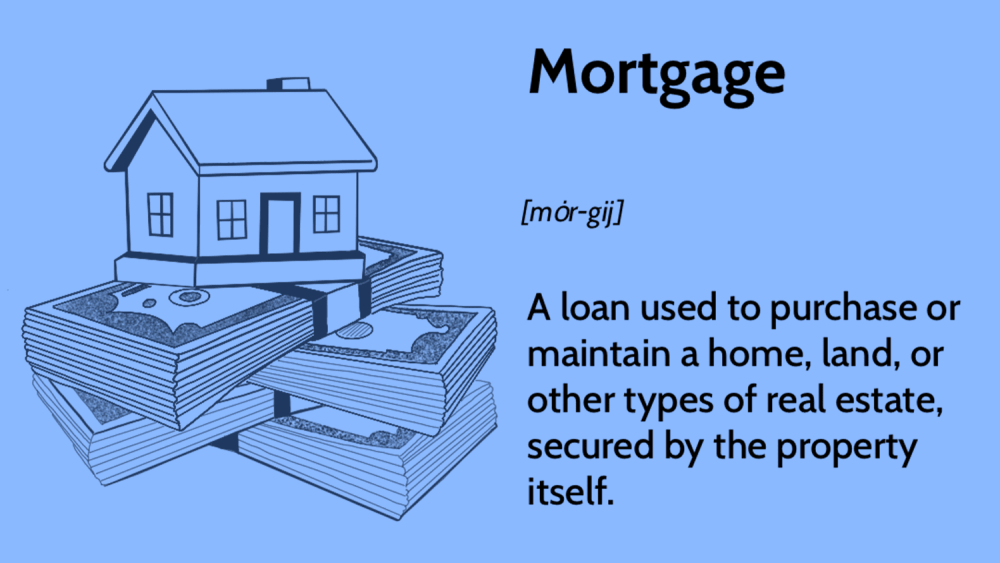When buying a home, one of the most crucial decisions you’ll make is choosing the right type of mortgage loan. Your choice will depend on various factors, including how much you need to borrow and your financial health. If one mortgage option doesn’t suit your needs, another might be a better fit. Let’s dive into the different types of mortgage loans available in 2024 and help you understand which might be the best for your situation.
What is a Mortgage Loan?
A mortgage is a secured loan used to purchase real estate. Since most people can’t pay the full price of a home upfront, they use a mortgage to spread the cost over many years. The property serves as collateral for the loan, meaning you could lose your home through foreclosure if you fail to make payments.
Why Choosing the Right Mortgage Matters
There are numerous mortgage types available, each with its own set of requirements, advantages, and drawbacks. Selecting the right mortgage can save you a significant amount of money over time and ensure your monthly payments are manageable.
Fixed-Rate Mortgages
What is a Fixed-Rate Mortgage? A fixed-rate mortgage locks in your interest rate for the entire duration of the loan. This means your interest rate and monthly payments remain constant, regardless of market fluctuations.
Pros and Cons Fixed-rate mortgages offer stability, as your payment won’t change over the life of the loan (though it could vary slightly due to changes in property taxes or insurance). However, if interest rates drop, you won’t benefit unless you refinance, which can be costly and time-consuming.
Who Are They Best For? These mortgages are popular and suitable for most borrowers, especially those who prefer consistent payments and plan to stay in their homes long-term.
Adjustable-Rate Mortgages (ARMs)
What is an Adjustable-Rate Mortgage? An ARM has a fixed interest rate for an initial period, after which the rate adjusts periodically based on a specific index. For example, a 5/1 ARM means a fixed rate for the first five years, then annual adjustments.
Understanding the Rate Adjustment Lenders will inform you of the frequency and maximum amount of rate adjustments. It’s crucial to ensure you can afford the maximum potential rate increase.
Pros and Cons ARMs often start with lower rates than fixed-rate mortgages, making initial payments more affordable. However, your payments can increase if interest rates rise.
Who Are They Best For? ARMs can be suitable if you plan to sell or refinance before the rate adjusts or if you’re comfortable with the potential payment fluctuations.
Government-Backed Mortgages
FHA Loans Insured by the Federal Housing Administration, FHA loans are accessible to borrowers with lower credit scores and smaller down payments. You can qualify with a 3.5% down payment and a credit score of 580 or higher.
VA Loans Guaranteed by the Department of Veterans Affairs, VA loans are available to veterans and active military members. These loans offer lower interest rates and don’t require a down payment or mortgage insurance, though a funding fee is applicable.
USDA Loans Backed by the U.S. Department of Agriculture, USDA loans are for low-to-middle-income families purchasing homes in rural or suburban areas. They offer competitive interest rates and require no down payment.
Pros and Cons of Government-Backed Loans These loans often have lower interest rates and more lenient down payment requirements. However, they may include additional costs, like FHA mortgage insurance or VA funding fees.
Conventional Mortgages
What is a Conventional Mortgage? These are not backed by the government and include conforming loans that meet Fannie Mae or Freddie Mac standards and jumbo loans for amounts exceeding those limits.
Conforming Loans Conforming loans adhere to the loan limits set by the Federal Housing Finance Agency. In 2024, these limits are $766,550 in most areas and up to $1,149,825 in high-cost areas. They generally require a credit score of at least 620 and a maximum debt-to-income ratio of 50%.
Jumbo Loans Jumbo loans exceed conforming loan limits and typically have stricter qualification requirements, including higher credit scores and larger down payments.
Pros and Cons Conventional loans can offer more flexibility and potentially lower overall costs. However, they can be harder to qualify for compared to government-backed loans.
Specialty Mortgage Loans
Reverse Mortgages Available to homeowners aged 62 or older, reverse mortgages allow you to convert home equity into cash. Instead of making payments to the lender, the lender pays you, which can be an attractive option for retirees.
Construction Loans These short-term loans finance the construction of a new home and typically convert to a regular mortgage once the construction is complete. They often have higher interest rates due to their short-term nature.
Non-QM Loans Non-qualified mortgages (non-QM) cater to borrowers who don’t meet the standard criteria for conventional loans. These can include interest-only and balloon mortgages and may offer more flexible income verification methods.
Conclusion
Understanding the various mortgage options available in 2024 can help you make an informed decision when buying a home. Each type of mortgage has its unique benefits and drawbacks, so consider your financial situation, future plans, and risk tolerance when choosing the best mortgage for you. Whether you opt for a fixed-rate mortgage, an ARM, a government-backed loan, or a specialty mortgage, doing your homework can save you money and stress in the long run.
By carefully evaluating your options and consulting with a knowledgeable mortgage advisor, you can navigate the complex mortgage landscape with confidence and secure the best possible terms for your new home.
For more information, you can refer to the original article by Business Insider, published in July 2024

